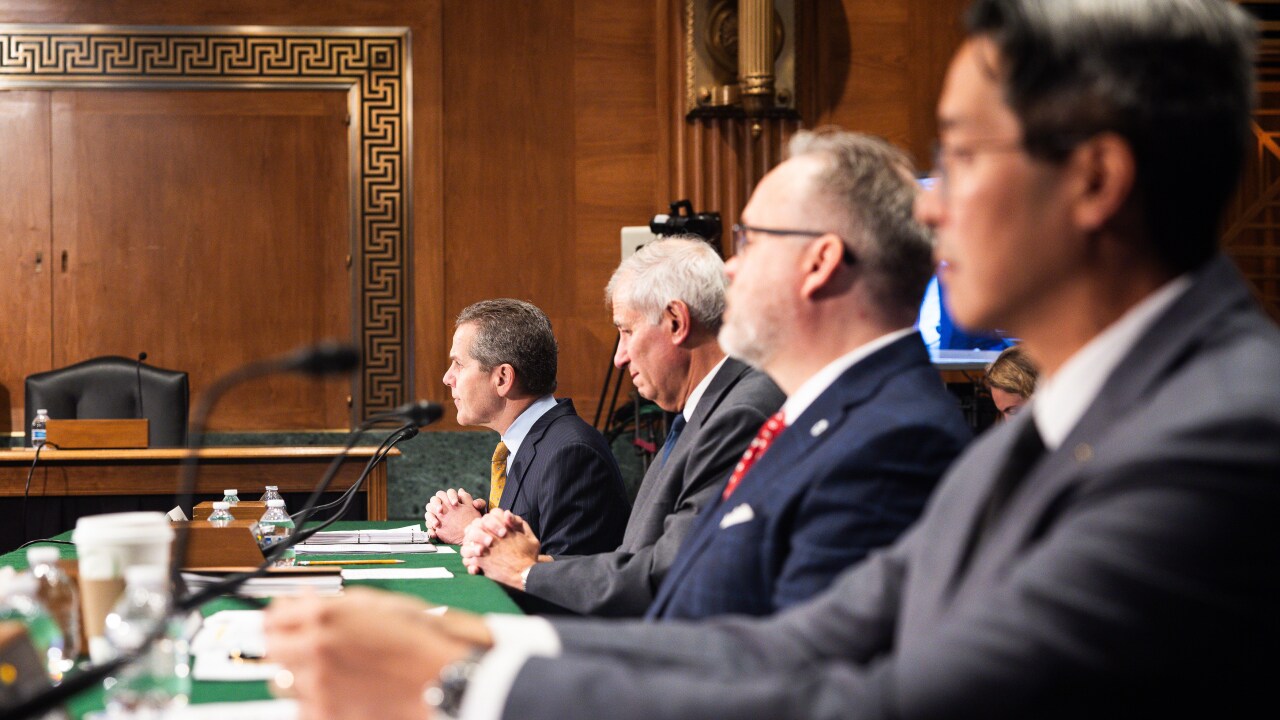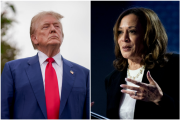-

If it feels like
These numbers may even
And while any thug can perpetrate these frauds and scams, they are often orchestrated through organized crime rings and even state-sponsored actors — and they can finance other illicit activities such as drug and human trafficking.
Scams are a national crisis that requires a national response.
On behalf of America's leading retail banks, I call on the federal government to lead a national response to fraud and scams.
Banks now have until Oct. 30 to weigh in on potential risks of third-party fintech partnerships for banking products and services.
Banks
Fraudsters regularly use a wide range of tools to trick consumers: phone calls, text messages, spam emails, social media groups, dating sites and cryptocurrency exchanges. Because the bad guys are using an interdisciplinary, highly coordinated approach to scams, the "good guys" need the same level of response.
My organization recently helped publish an academic paper, "Stopping Scams Against Consumers: Roadmap for a National Strategy," that sets out an initial game plan for tackling fraud and scams. Scams are a long-game con: Fraudsters start talking to consumers well before consumers eventually send them money. Therefore, we need to protect consumers with a game plan that similarly stops fraudsters before funds start moving. This means that we need the government to help banks work with telecommunications companies; internet companies; cryptocurrency companies; and, most importantly, the state and federal agencies that regulate them to make sure we're all on the same page.
For instance, if the same used car shows up for sale in all 50 states, someone should be able to flag that it's an issue and make sure everyone's taken it down. Similarly, if one profile sends 20,000 messages on a dating site, someone needs to make sure that the pictures (and email addresses) from that profile are shared with other companies to make sure that the bad guys can't just hop from one site to another.
And once these criminals have been identified, law enforcement must pursue them, and they must be prosecuted. In a recent roundtable that we held with government and private-sector experts, participants raised concerns that law enforcement isn't doing enough to deter repeat fraudsters and scammers.
In short, crime (currently) pays.
But that doesn't have to be the case. All too often, scams aren't prosecuted because the bad guys are overseas. A national strategy will only be successful if it's led by the U.S. government, which can then work with other countries to ensure appropriate cooperation, and, ultimately, prosecution.
Finally, the government needs to play a more proactive role in preventing fraud and educating consumers. This cannot be limited to any one agency and requires leadership from the White House, as well as relevant departments and agencies such as Treasury, Commerce, the Federal Communications Commission and, of course, the Consumer Financial Protection Bureau.
While Washington has recently turned its attention to scams and fraud, it's unfortunate that policymakers seem more focused on grabbing headlines and pointing fingers. Americans deserve better. Scams and fraud are complex and real issues. Washington needs to focus on complex and real solutions — linking arms with industry across the board to protect Americans across the country.







